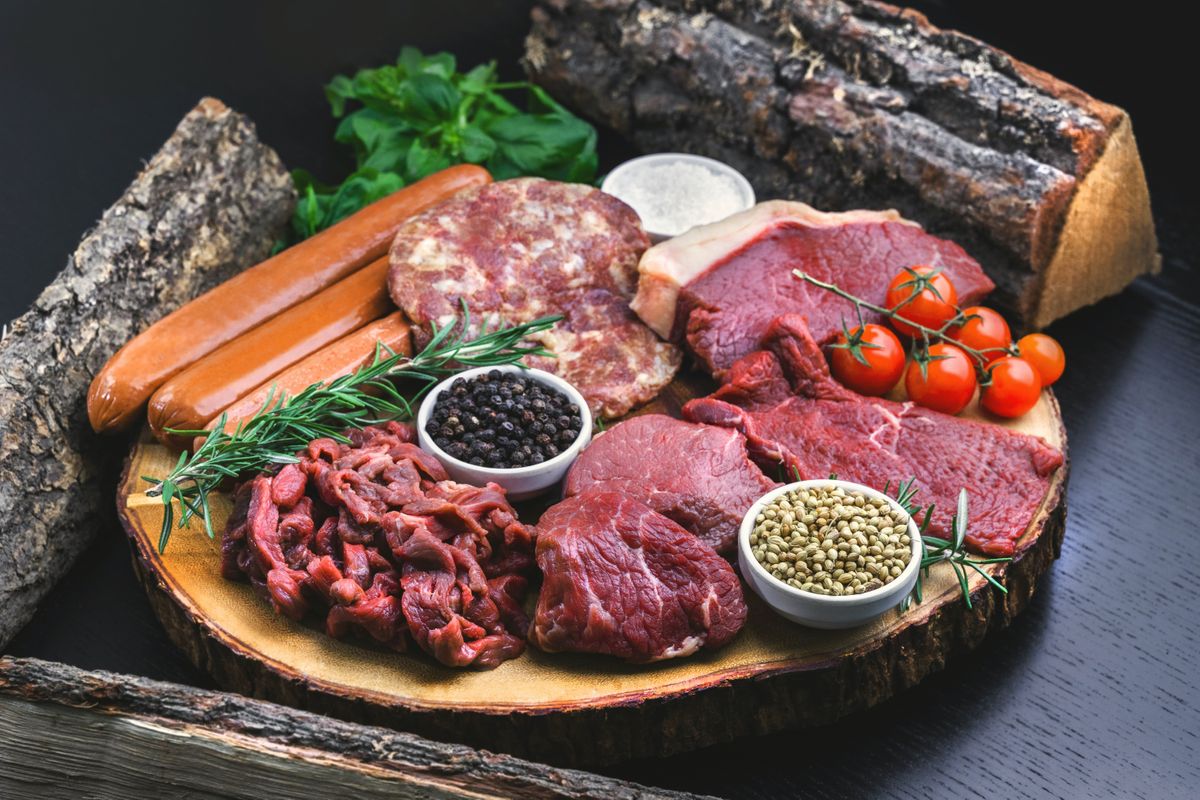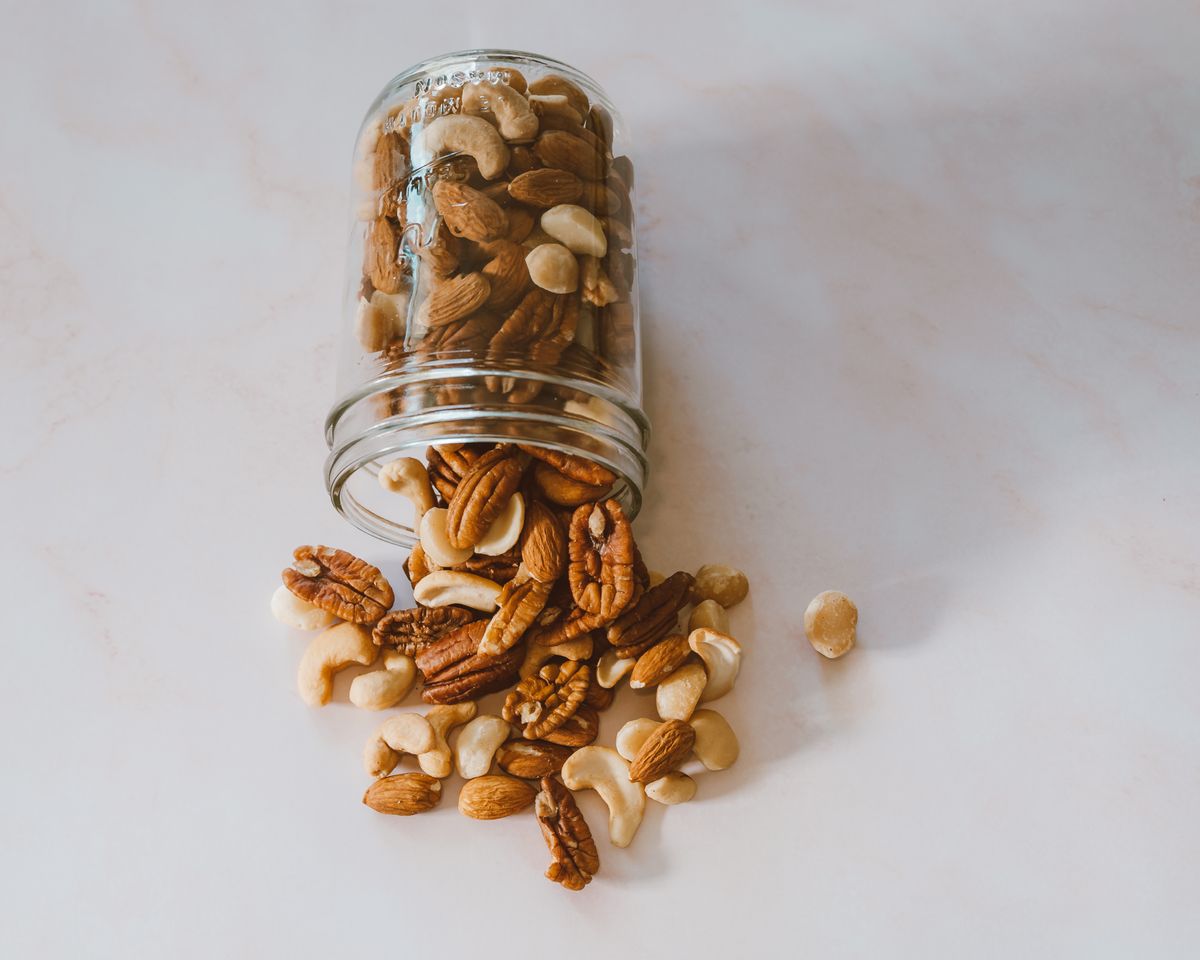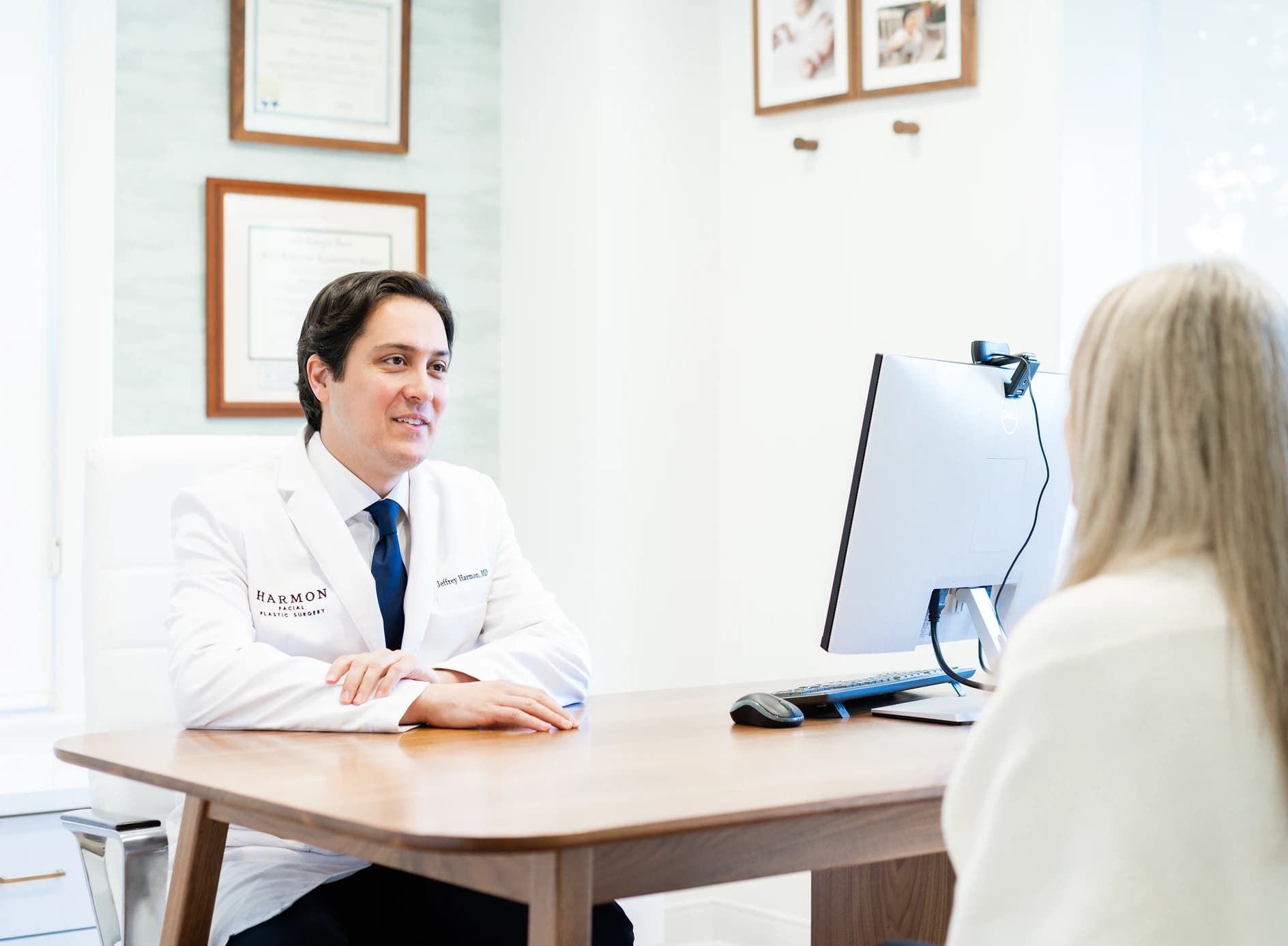
Nutrition goes a long way when preparing for and recovering from surgery! Proper nutrition can be the key to a successful surgery. What you learn here should empower you while relieving some of the stress you may feel going into and coming out of your upcoming surgical procedure. It is important to seek not only a fellowship-trained but also a double board-certified facial plastic surgeon if you have aesthetic concerns about your face and/or neck.
Lifestyle
The benefits from cessation of smoking could be an entire blog post on its own. It is highly recommended that you avoid smoking before and after a procedure. It is easier said than done, but it can make a huge difference. Smoking affects blood oxygen levels and the quality of blood circulation through the vessels. It decreases blood flow making surgical wounds less likely to heal well and more likely to become infected. Oxygen-rich blood and non-constricted arteries and veins are essential for healing.
Avoiding excessive alcohol consumption is recommended as it is unhealthy and even in small quantities can cause blood thinning effects during surgery, which can contribute to bleeding and bruising. It is okay to drink alcohol in moderation until about two weeks before surgery. Within those upcoming two weeks and for a week or two post-operatively, it is best not to drink alcohol at all.
Exercise is a wonderful thing for many reasons such as increasing blood flow, improving mood, boosting energy, and promoting better sleep. However, when you are having plastic surgery, it is advised to avoid any new or vigorous exercises. It is best to focus on maintaining your current level of fitness whatever that may be. I recommend focusing on stretching and strengthening. Yoga would be a great idea!
Nutrition
Avoiding or limiting highly processed foods and fast food is strongly advised to prevent inflammation and swelling from the high sodium content. If you usually cook with salt, try using spices instead! When you’re at the grocery store next, try looking for “no salt added” versions of your favorite canned goods. Try cooking at home whenever possible to cut down on your sodium consumption.
In addition to cutting back on processed foods, following a well-balanced diet is always recommended. That includes whole foods, adequate calories, adequate fiber, adequate macronutrients, and adequate vitamins and minerals. Inadequate caloric intake can increase your risk for slower healing and infection. While following a well-balanced diet, maintaining adequate hydration is also very important. I usually tell my clients to shoot for at least 64 ounces per day!
Let us dive into the importance of adequate macronutrients before and after surgery. There are 3 macronutrients: carbohydrates, protein, and fats.

Carbohydrates
Carbohydrates are essential for wound healing. When you eat carbs, your body breaks them down into glucose which provides energy for white blood cells. While we need carbohydrates, we can be thoughtful when it comes to eating them.
Simple carbohydrates have very few sugar molecules so are digested fast and absorbed into the bloodstream. This causes blood sugar levels to quickly rise and later be followed by an energy crash.
In contrast, complex carbohydrates contain fiber and more complex chains of sugars which are digested and absorbed slower. They enter the bloodstream more slowly which allows a steady release of energy. This steady release is much more sustainable than the dips and spikes you see with simple carbohydrates, especially when you are eating simple carbohydrates alone. It is suggested to avoid “naked carbs” which are simple carbohydrates that are not paired with protein or fat that would otherwise slow digestion, reducing the spikes in blood sugar. “Naked carbs” cause more hunger and cravings. Some examples of simple carbohydrates include fruit or fruit juice, chips, crackers, etc.
The following are some ideas of how to incorporate protein and/or fats with complex carbohydrates:
- Add cheese to crackers, eat with wine or beer
- Pair fruit with nuts, nut butter, yogurt, or chocolate hummus
- Swap out your fat-free milk when eating cereal
- Try topping your toast/bagels with avocado or peanut butter
As we have learned, fiber slows digestion, which can smooth blood sugar spikes. At least 25 grams per day is recommended. When increasing fiber in your diet, be sure to increase fluid intake. Remember at least 64 ounces of water per day is recommended!
The following are some ideas of how to increase fiber in your diet:
- Swap white pasta and rice for wheat
- Eat whole fruits and vegetables with the skin on them instead of drinking juice
- Ditch your chips and grab some popcorn, which is whole grain
- Add chia seeds and flaxseeds into oatmeal, yogurt, or cereal

Proteins
Proteins are comprised of amino acids that our bodies use to repair muscle and bones and produce hormones and enzymes. Protein can be used as an energy source and carries oxygen throughout your body. It helps make antibodies that help our bodies fight infections and illnesses. I encourage my clients to start their day off with protein. Great sources of protein include red meat, poultry, eggs, fish/seafood, dairy, and beans. Breakfast should include at least 10 – 20 grams of protein. The remaining meals of the day should include at least 20 grams of protein.

Fats
Finally, fat is essential to give our body energy and support cell function. Fats help protect our organs and keep our bodies warm. Fat also helps our body absorb nutrients and produce hormones. I encourage you to include fat at every meal. Some examples include avocado, eggs, nuts, nut butters, hummus, butter, etc. Most Americans do not consume enough omega-3 fatty acids which are amazing for reducing inflammation! Try to aim for fish twice a week as they are very rich in omega-3s. Other sources include flaxseed, chia seeds, walnuts, and edamame.
Micronutrients
Micronutrients are especially important for before and after surgery. They include Vitamin A, Vitamin C, Zinc, and Iron.
Vitamin A is a fat-soluble vitamin that supports our skin, eyes, and immune system. It is required for epithelium and bone formation, immune function, and cellular differentiation. The average adult needs about 700 – 900 mcg daily. Excellent sources of Vitamin A include carrots, sweet potato, spinach, squash, pumpkin, apricots, eggs, liver, salmon, milk, and goat cheese.
Vitamin C is a water-soluble vitamin that is required for the biosynthesis of collagen. Vitamin C supports the immune system, helps wound healing, and serves as an antioxidant. Most people recognize oranges as a source of Vitamin C, but other foods with more Vitamin C than oranges include kale, strawberries, broccoli, red and green bell peppers, brussels sprouts, kiwi, and chili peppers.
Zinc is a trace mineral that is responsible for a variety of processes including gene expression, growth and development, and immune function. It is also great for wound healing. Some sources include red meat, seafood, poultry, legumes, whole grains, vegetables, nuts, and seeds.
Trust Your Face to a Facial Plastic Surgeon
It is important to seek a double board-certified, fellowship-trained specialist in plastic surgery of the face and neck when you have concerns about your face or neck.
Why Choose Dr. Harmon
- The mission of Harmon Facial Plastic Surgery is to help people along their journey towards self-confidence, to feel good about feeling good.
- Dr. Harmon is a double board-certified facial plastic surgeon.
- Dr. Harmon values making patients feel welcomed, listened to, and respected.
- Dr. Harmon graduated with honors from Cornell University with a Bachelor of Science degree in molecular biology.
- Dr. Harmon earned his medical degree from the University of Cincinnati.
- Dr. Harmon underwent five years of extensive training in head at neck surgery at the prestigious residency program at the University of Cincinnati.
- Dr. Harmon then underwent focused fellowship training in cosmetic facial plastic surgery through the American Academy of Facial Plastic and Reconstructive Surgery (AAFPRS) with the world-renowned surgeon, Dr. Andrew Jacono, on Park Avenue in New York City.
Request a Consult
Request a consultation with Dr. Harmon at Harmon Facial Plastic Surgery in Cincinnati. Visit our clinic. You will learn more about Dr. Harmon’s credentials, style and approach. Build a relationship with our dedicated team. Do not stop at searching “plastic surgery near me.” Get in touch with us today to learn more!
More About Tirzah Thompson MS, RDN, LD
Book: Dietitian
Website: Dietitian Tirzah
Instagram: @dietitiantirzah
*The information in the blog post above is the opinion of the author and does not constitute direct medical advice from or necessarily reflect the opinion of Dr. Jeffrey Harmon or Harmon Facial Plastic Surgery.
Disclaimer
This blog post is for educational purposes only and does not constitute direct medical advice. It is essential that you have a consultation with a qualified medical provider prior to considering any treatment. This will allow you the opportunity to discuss any potential benefits, risks, and alternatives to the treatment.

Book Your Consultation
Take the first step toward enhancing your natural beauty by scheduling a personalized consultation with Dr. Jeffrey Harmon. As a double board-certified facial plastic surgeon trained by the pioneer of the extended deep plane facelift, Dr. Harmon offers expert guidance and care. Whether you're considering surgical or non-surgical options, our team is here to support your journey to renewed confidence.